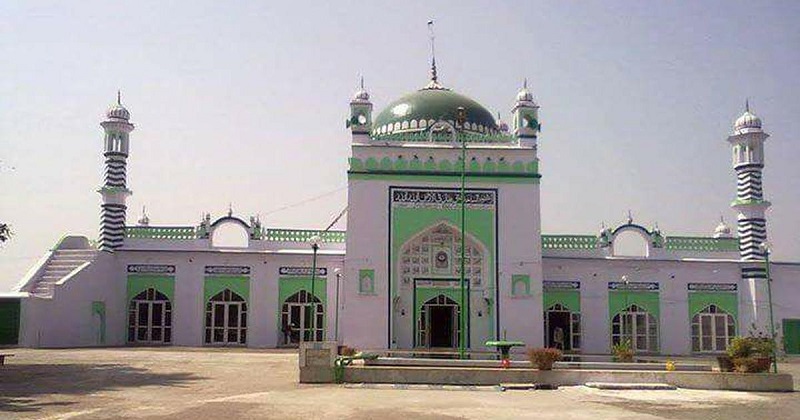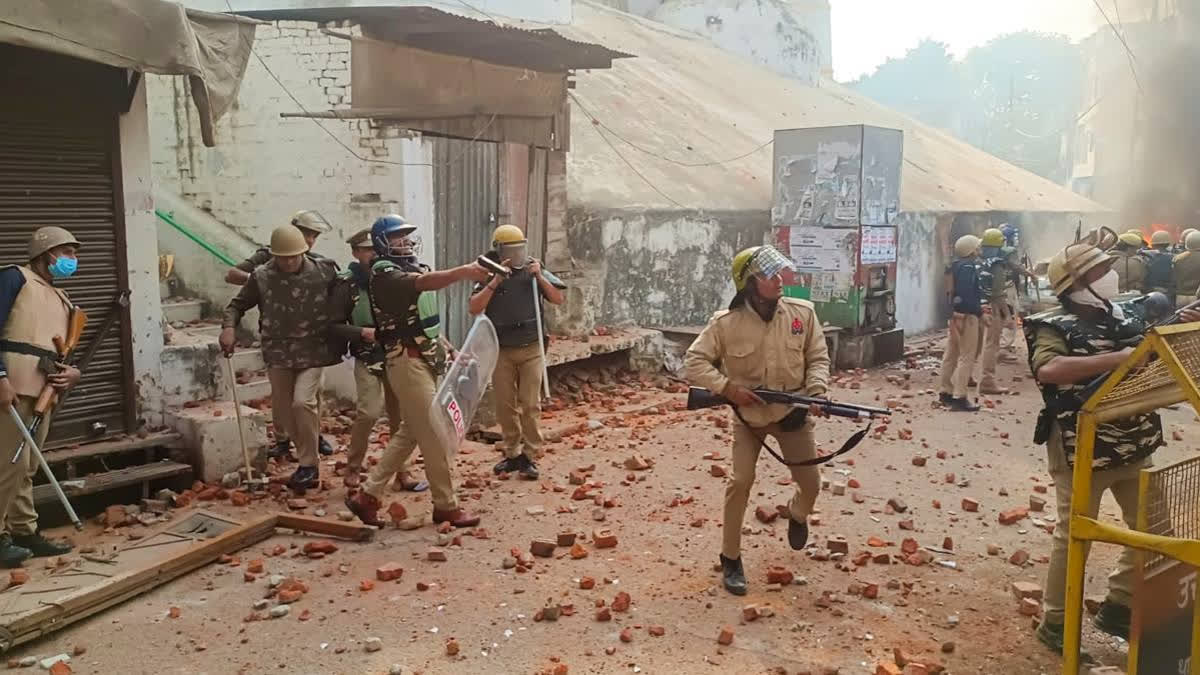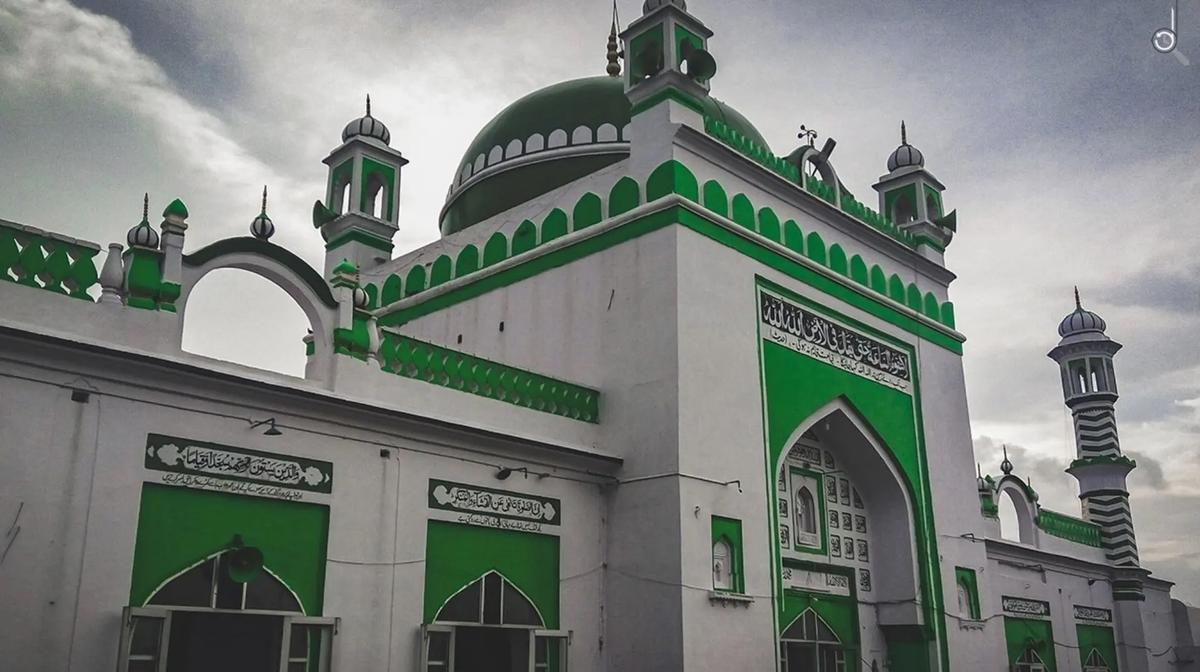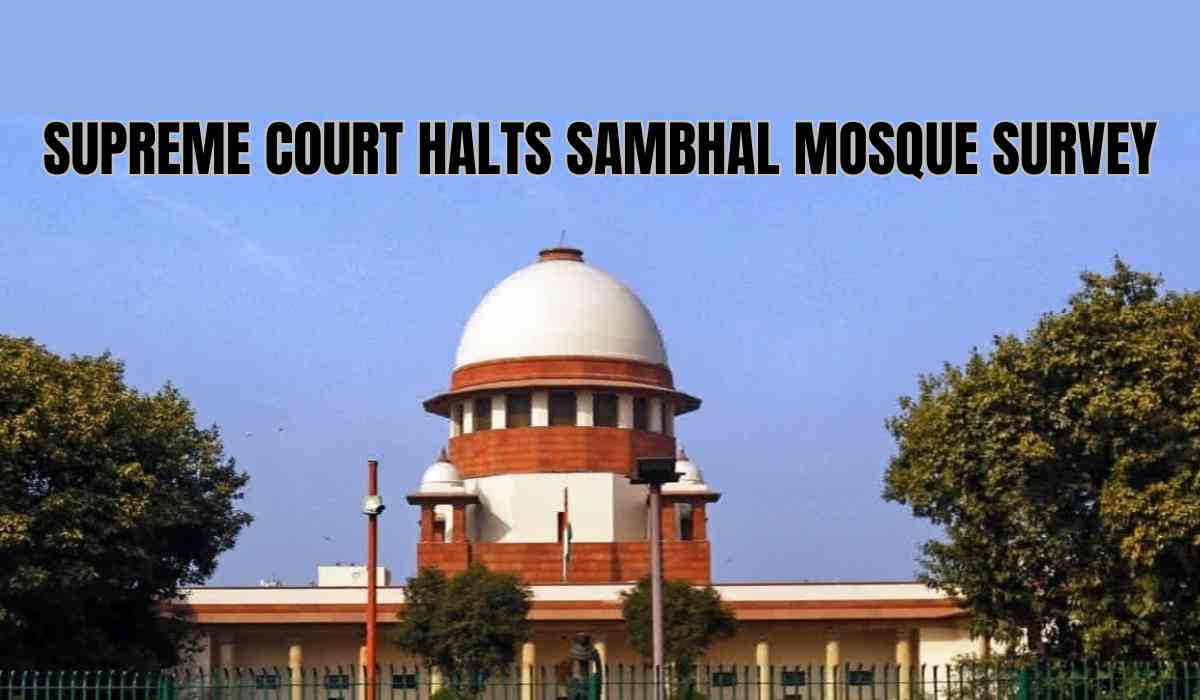The Supreme Court of India has temporarily stayed the trial court proceedings over the survey of the Mughal-era Shahi Jama Masjid in Sambhal, Uttar Pradesh. The court also laid down a need for peace and communal harmony in the violence-hit region.

Background of Dispute
The controversy started on November 19, the Sambhal trial court ordered the survey of Shahi Jama Masjid through an advocate commissioner after a petitioner had alleged that the mosque constructed by the Mughal emperor Babur in 1526 replaced a previously existing temple. The ex parte order sparked tensions in the area which then gradually mushroomed into violent clashes on November 24 which lead to the killing of four and injuries to several others.

Observations of Supreme Court
A bench comprising Chief Justice Sanjiv Khanna and Justice Sanjay Kumar asked the authorities to maintain peace and harmony in Sambhal. It directed that the survey report prepared by the advocate commissioner be sealed and not opened till further orders. The bench further directed the Shahi Jama Masjid Committee to get its plea against the survey order issued by the trial court placed before the Allahabad High Court within three working days. While emphasizing the importance of legal procedure, the apex court told the mosque committee that it could challenge the trial court's order in the High Court under Article 227 of the Constitution.
"We hope and trust the trial court will not proceed with the matter until the High Court takes it up. Peace and harmony must be maintained," said the CJI.

Issues Raised by the Mosque Committee
The Shahi Jama Masjid management committee approached the Supreme Court, citing circumstances after a November 19 survey order which triggered communal violence. The committee argued that, it had no prior notice on the trial court's decision and they also pointed out that the mosque in question is a 16th-century monument protected by the Archaeological Survey of India (ASI) and that Places of Worship Act 1991, bars such claims.
Government Assurance
The Additional Solicitor General, representing the Uttar Pradesh government, assured the Supreme Court that the administration is keen on maintaining peace in the region. The court further directed the state to establish a peace committee comprising members from both communities so that harmony is established in the region. The matter is taken up for further hearing before the Supreme Court during the week commencing on 6 January 2025.
Inputs by Agencies
Image Source: Multiple Agencies
Ⓒ Copyright 2024. All Rights Reserved Powered by Vygr Media.




















